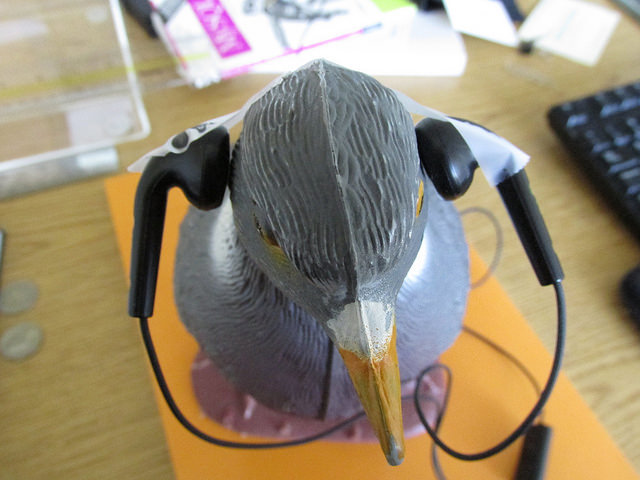Archive for November, 2015
Scarcity and Abundance
 Supply and demand have been joined at the hip since the beginning. When demand is high, the deck is shuffled so supply seems low. The fabricated scarcity drives up prices and shareholders are happy. When demand is low, the competition pushes each other on price. The abundance creates a commodity, and it’s a race to the bottom.
Supply and demand have been joined at the hip since the beginning. When demand is high, the deck is shuffled so supply seems low. The fabricated scarcity drives up prices and shareholders are happy. When demand is low, the competition pushes each other on price. The abundance creates a commodity, and it’s a race to the bottom.
But this is old thinking.
Scarcity isn’t a lever to jack up prices or manipulate relationships, it’s an opportunity to spend your limited resources on the most important work and to build relationships. When you tell a potential partner you want work with them and you are willing to spend your finite resources to make it happen, it’s a huge compliment. Voting with your feet makes a powerful statement that you’re serious about working with them because you think they’re special. You are telling them that you will say no to others so you can say yes to them. Both know they’re part of something important and the free-flowing positivity results in something otherwise impossible.
Scarcity is limiting only if your mental framework thinks it is. If you hoard and hold tightly, scarcity breeds win-lose relationships governed by power dynamics. But if you choose the anti-framework, scarcity creates trust.
Played differently, abundance does not create commodity, it’s opportunity to show others you have enough to spare. In personal relationships, when you share some of your work for free your relationships blossom. When you give it away you are signaling that you have plenty to spare. It’s clear to everyone you are a geyser of new thinking. Here – take this. I’ll make more. These simple words create a foundation of trust which bolsters your personal brand. And because all business relationships are personal relationships, it does the same thing for your company’s brand.
Make it a commodity or give it away – how you see abundance is your choice. The old way breeds bare-knuckled competition. The new way creates a brand steeped in trust.
If you have scarcity, be thankful for it. Allocate your precious resources thoughtfully and with love. Spend your time with the people and causes that matter. It will feel good to everyone, including you. And if you have abundance, be thankful. Choose to develop closer relationships based on trust. Choose to give it away.
Happy Thanksgiving.
image credit — GloriaGarcia
Diversity Through Podcasts
 Podcasts are short bursts of learning curated to please your ear. And with training budgets slashed, podcasts can be a wonderful and cost effective (free) way to learn.
Podcasts are short bursts of learning curated to please your ear. And with training budgets slashed, podcasts can be a wonderful and cost effective (free) way to learn.
The only way to battle uncertainty is to increase diversity. Bringing together people with diverse experiences lets us see things from multiple perspectives so we can better navigate uncertain terrain. But increasing your personal diversity helps too. Giving yourself new knowledge from diverse fields helps you broaden your perspective and makes you better at handling the uncertainty that comes with life.
The hard part about podcasts is deciding which ones to listen to. In my work to increase my diversity, I’ve listened to a lot of podcasts. Some were interesting and inspiring and others weren’t.
Below are some of my favorite podcast episodes. There’s a short description of each one, along with what I learned from them. Click the link to take you to the episode and you can listen to each one. No need to download. Just find the play button and click it.
Enjoy.
9-Volt Nirvana (Radiolab) — I learned about how the brain works and how it can be supercharged (with a 9-volt battery) to learn faster. I listened to this one on a long car ride with my daughter. She doesn’t like podcasts, but she was captivated by this one.
The Living Room (Love and Radio) — A story about how things can look differently than they are, especially when looking from the outside. I learned how our assumptions and the stories we tell ourselves shape how we see the world. This one is emotionally gripping.
Guided by Voices (Benjamin Walker’s Theory of Everything) — How Kant and Kepler both tried (and failed) to record the universal harmonies Pythagoras once heard. They struggled to make peace with the irrationality and disharmony of nature. I learned disharmony is natural and to embrace it. There’s a segment in the middle that’s not about Kant and Kepler that you may want to skip. To skip that segment, listen from the beginning and at 9:30 skip to 23:07 and listen to the end.
Eckhart Tolle’s The Power of Now (On Being) — I love Eckhart’s voice and his chuckle. I learned how I am not my emotions; I am the space for my emotions. And I learned about the Pain Body. That, on its own, was worth it. Krista Tippett is a brilliant interviewer.
Belt Buckle (Mystery Show) — A story about a long-lost belt buckle and its journey home. I learned how we attach meaning to objects, and that can be a good thing.
The Wrath of the Khans 1 (Dan Carlin’s Hardcore History) — This is a riveting story of Genghis Khan. Dan Carlin is wonderful – he sits you right in the middle of history. (Listen for two minutes and you’ll feel it.) I learned the power of personal will and how history changes over time. To skip Dan’s wonderful introduction and get a feel for the Great Khan, start at 19:00 and listen for 10 minutes. If you like what you hear, keep listening. This podcast is long almost 2 hours and it’s the first of a series of five on the Great Khan. This is one of my most favorite favorites.
image credit — mpclemens
Is it novel?
 Agree or not, companies think they have to grow to survive. (I don’t believe it.) For companies of all sizes and shapes, growth is the single most important forcing function. Is has tidal wave power, and whether you’re a surfer, sailor or power-boater, it’s important to respect it. More than that, when push comes to shove, it’s the only wave in town.
Agree or not, companies think they have to grow to survive. (I don’t believe it.) For companies of all sizes and shapes, growth is the single most important forcing function. Is has tidal wave power, and whether you’re a surfer, sailor or power-boater, it’s important to respect it. More than that, when push comes to shove, it’s the only wave in town.
Companies’ recipe for growth is simple: make more, sell more. And some keep it simpler: sell more.
The best growth: sell new products or provide new services to new customers; next best: sell new to the same customers; next next best: sell more of the same to the same customers. The last flavor is the easiest, right up until it isn’t. And once it isn’t, companies must come up with new things to sell. That works for a while, until it doesn’t. Then, and only then, after exhausting all other possibilities, companies must create real newness and try to sell it to strangers.
The model works well as long as everyone in the industry follows it. But when an up-start outsider enters the market back-to-front, the wheels fall off. When they develop useful newness before you and sell it to your customers (new customers for them), that’s not good. And that’s why it’s so important to start with different — right now.
To help your company do more work that’s different, start with an inventory of your novelty. Novel work is work that creates difference, and that difference can be defined only in comparison with the state-of-the-art (what is, or the baseline system). Start with a functional analysis of your state-of-the-art. Create a block diagram of your business model, your most successful product and the service that defines your brand. Take a look at your technology and new product development projects and flag the ones that will create things that aren’t on your three functional analyses. (Improvement projects, because they improve what is, cannot be flagged as novel.)
Put all your novelty on one page and decide if you like it. (No way around it, how you respond to the level and type of novelty in your quiver is a judgment call.) If you like what you see, keep going. If you don’t, stop some improvement projects and start some projects that create useful novelty. The stopping will not come easy. Existing projects have momentum and people have personal attachment to them. The only thing powerful enough to stop them is the all-powerful growth objective. If company leaders learn the existing projects won’t meet the growth objective, the tidal wave will sweep away some lesser projects to make room for new ones.
There will be great internal pressure to add projects without stopping some, but that won’t work. Everyone is fully booked and can’t deliver on additional projects even if you tell them to. If you’re not willing to stop projects, you’re better off staying the course and waiting until you finish one before you start a project to increase your novelty score.
Novelty is good because there’s more upside potential, and improvement is good because there’s more certainty. One is not better than the other. You need both.
In the end, you’re going to have to judge if you’re happy with what you’ve got. That’s a difficult task that no one can make easier for you. But it is possible to use your judgment better. If you can clearly call out what’s novel and what’s not, you’re on your way.
Image credit – s3aphotography (image cropped)
You’re worth it.
 Why are you holding back? Why aren’t you giving your best? Why are you blocking yourself?
Why are you holding back? Why aren’t you giving your best? Why are you blocking yourself?
An open, honest disagreement can be a positive learning experience for both. If your intensions are good, everything works out well. I’m not sure why, but when your pockets are full of good intensions, the universe is kind to you.
But the universe’s kindness doesn’t manifest in the outcome you want. It’s a better teacher than that. The universe has been around a long time and has seen it all. It understands context. And it has a good memory. It uses both as input for its outputs. And to keep things lively, it often exercises its dry sense of humor. But more than anything, the universe is a good judge of character. And that’s how it decides how things should go.
A situation has no inherent emotional component. Any emotion attached to the situation is attached by you. If you feel fear, it’s not the situation. You’re afraid. Things aren’t scary, you make them scary. Situations don’t hold you back, you do.
Fear is a protection mechanism. But from what? If you hold back because you’re afraid what others will think, you are protecting yourself from judgement. At the surface it looks like you are afraid of being judged by others, but that’s not it. You are afraid of being judged by you. But if your intensions are good, the universe will give you what you deserve. There’s nothing to fear. Yet, you block yourself.
You’re not afraid others will judge you as second class. You want to avoid the discomfort of judging yourself as second class. You don’t put yourself out there because you don’t want to be reminded that you don’t feel good about yourself. People and situations can’t knock you down a rung, only you can. You have control over how much love you give yourself. And it’s time to give yourself more.
This may sound silly, but it’s not – if you make a little time every day to wish yourself kindness, happiness and peace you will have more peace and happiness. You will attach less fear to situations judge yourself less and block yourself less.
Give it a try. You’re worth it.
 Mike Shipulski
Mike Shipulski